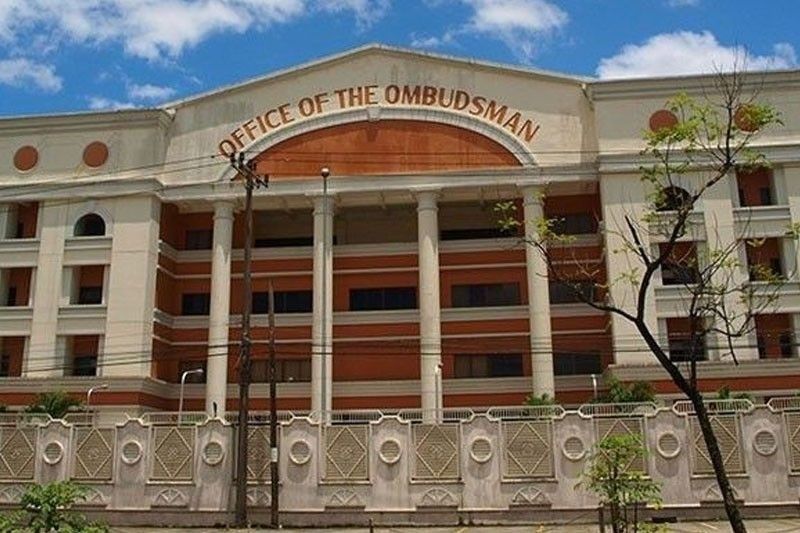SC junks petition challenging Ombudsman circular restricting access to SALNs

MANILA, Philippines — The Supreme Court has junked a petition — the first known — challenging the Office of the Ombudsman’s memorandum circular restricting access to public officials’ wealth declaration documents.
In an en banc resolution dated June 30, the tribunal junked the petition for certiorari, prohibition and mandamus filed by a certain Louis Biraogo against Ombudsman Samuel Martires.
Biarogo asked the SC to set aside and prohibit the implementation of Memorandum Circular No. 1, series of 2020 for being unconstitutional. The said directive states that “no [Statement of Assets, Liabilities and Net Worth] will be furnished to the requester unless he/she presents a notarized letter of authority from declarant allowing the release of the requested SALN.”
The SC junked the petition as it held that it did not present an actual case or controversy, failed to observe the hierarchy of courts, and that a petition for mandamus does not lie in the said case.
The petitioner told the SC that he wrote to Martires on Sept. 21, 2020 requesting for the procedure on obtaining a copy of Vice President Leni Robredo’s latest SALN for his “own study” on her supposed use of a mansion in Quezon City paid with taxpayer’s money. Having received no reply, Biraogo called up Martires’ office and was told his request cannot be accommodated following Memorandum Circular No. 1.
Biraogo ran to the SC asserting the denial of his request was a violation of the right to information enshrined in Section 7, Article III and Section 17, Article XI of the Constitution, and in Sections 5(e) and 8 of Code of Conduct and Ethical Standards for Public Officials and Employees.
He also invoked the SC’s power on judicial review or to test the “validity of executive and legislative acts for their conformity with the Constitution, with the end in view of enforcing and upholding the supremacy of the Constitution.”
The SC’s ruling
The court noted that there are requirements for it to exercise its power of judicial review. “The Petition has failed to meet the first requirement as it does not present an actual case or controversy,” it said.
“In order to be justiciable, the controversy must be definite and concrete, touching on the legal relations of parties having adverse legal interests,” it added.
But in the present case, the SC noted that while the petitioner said he was told verbally over the phone that his request could not be accommodated, it does not demonstrate any actual act committed by the Ombudsman which resulted in direct and concrete injury.
The alleged verbal refusal “is but a bare, self-serving and unsubstantiated allegation,” it added.
“It also would not suffice for the Court to exercise judicial power by the mere existence or effectivity of Memorandum Circular No. 1, absent ‘acts or events where concrete rights or duties arise,” it added.
The SC also pointed out that the petitioner’s invocation of transcendental importance cannot cure his failure to observe the hierarchy of courts, which dictates that direct course to this court is allowed only to resolve questions of law.
“With the status of petitioner’s request before the Office of the Ombudsman being an unsettled and debatable fact, the present Petition evidently does not involve pure questions of law,” the SC said.
Ombudsman’s regulatory powers
It added that the remedy of mandamus does not lie in the case as this only applies if the duty subject is ministerial and not discretionary.
The SC stressed that while the right of access and information to SALN is provided under the Constitution and Code of Conduct and Ethical Standards for Public Officials and Employees, it is not an absolute vested right. And the court has, in the past, ruled that access to official records such as SALN “is undoubtedly subject to regulation.”
This power to regulate stems from the power of the custodian to control its very office, and in this case, the custodian is the Office of Ombudsman, which is not bound under every circumstance to grant every request of a public official’s SALN disclosure.
“A custodian is not prohibited by the Constitution to regulate such disclosure. Its duty therefore, under the Constitution and applicable laws, is far from being merely ministerial. The Court, in fact, as custodian of the SALNs of justices and judges, has itself laid down some guidelines to be observed for requests made to gain access to these SALNs,” it added.
Access to SALNs
Ombudsman Martires had suspended the release to the media of the 2018 SALNs of President Rodrigo Duterte, Robredo and other government officials, saying that the existing policy on public access to SALN is under review by his office.
In October 2020, the Malacañang said it is up to the Ombudsman to decide the release of Duterte’s SALN. A report by the Philippine Center for Investigative Journalism said then that it was the first time in the last three decades that a president has not made his wealth declaration document public.
READ: Palace: Duterte SALN up to ombudsman
Robredo, meanwhile, has granted Philstar.com’s request for a copy of her SALN. — with reports from The STAR/Elizabeth Marcelo, Alexis Romero
- Latest
- Trending




























